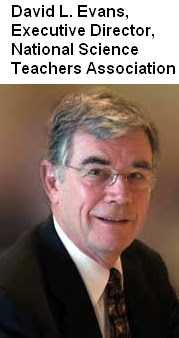Ross Firestone is a 2nd year MD/PhD student at the Albert Einstein College of Medicine. He is one of the winners of the MCAT Video Competition. Apparently the Khan Academy and the Association of American Medical Colleges were impressed with his presentations on evolution. You can see all six videos at Evolution and population dynamics.
I'm posting the first one on Evolution and Natural Selection. It's all about natural selection but it's a very strange kind of natural selection. The organisms are parthenogenic and each individual is genetically programed to have a certain probability of reproducing. One type has a 50% probability of reproducing and another type has only a 25% probability of reproducing. These probabilities seem to be independent of any competition between them. Each successful individual produces four offspring. After some time the number of one type remains constant (25% probability) but the number of the other type (50% probability) doubles with each generation. This is natural selection according to Ross Firestone.
"Naturally," I was disappointed that natural selection was the only mechanism mentioned. There's nothing about random genetic drift in this video and nothing about the stochastic nature of natural selection. But my face lit up when I saw that there was another video on "Alternative Selection: Learn about driving forces of evolution other than natural selection." This could almost make up for screwing up the description of natural selection.
Alas, the second video is even worse. The "alternatives" are group selection and artificial selection. It gets even more worse. The example of group selection is the grandmother hypothesis. According to Ross Firestone, the fact that grandmothers help their grandchildren survive is group selection.
The video on "Bottlenecks and the environment" is also quite interesting. I didn't know that that the peppered moth story is an example of a bottleneck. Did you?
I think these videos are horrible—so horrible, in fact, that the Khan Academy should take them down. What do you think?
Are you wondering why a 2nd year med student feels so confident that he knows enough about evolution to teach it to pre-med students? Me too.













